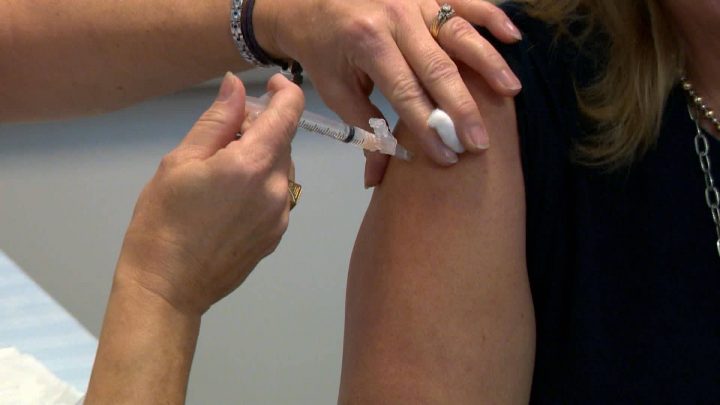Hamilton’s public health unit says the current number of lab-confirmed influenza cases for the first week of February is on par with data over the last 10 years.

Connie DeBenedet, Hamilton’s infectious diseases program manager, says the current infection rate as of Feb. 10 sees 500 lab-confirmed influenza A cases — the more serious strain of the virus — and approximately 120 lab-confirmed influenza B cases, which is “typical” for any given year over the last decade.
“So those are fairly typical for any given year,” DeBenedet said.
“Definitely, we know that we are in the midst in that peak of influenza season.”
Meanwhile, the last reported numbers for the province on Feb. 1, according to Public Health Ontario, decreased slightly from week to week from 1,177 to 1,169 cases, with 846 of those cases being the more aggressive Influenza A.
DeBenedet says flu season in Hamilton typically arrives in November when they see they start seeing the first lab-confirmed cases. The period usually lasts from late fall to early spring.
Typical symptoms are the traditional fever, headache, body aches, chills, tiredness, weakness, cough, runny eyes, stuffy nose and sore throat.
Although the city is at about the halfway point for the flu season, DeBenedet says public health still recommends anyone who’s not gotten a flu shot to consider it, especially if a person is over 65, pregnant, or under the age of five.
“So when we talk about, you know, the importance of getting the flu shot, one, we want to protect you, but also we’re aiming for what we call herd immunity in public health, which means we want as much of the population to be protected to prevent spread.”

Dr. Mark Loeb, division director of infectious diseases at McMaster University, told Global News that the flu shot you get from a clinic or pharmacy is not perfect but provides above-average protection when administered.
“The effectiveness varies, but on average is 60 per cent effective,” Loeb said. “It is still a good idea to get it in February, ideal to get the vaccine in the fall, it protects by producing antibodies to the virus.”

Get weekly health news
Loeb goes on to say side effects from getting the vaccination are typically mild and connected to the needle itself.
“Common side effects are local at the injection site like redness or swelling.”
With over 40,000 confirmed cases of the coronavirus worldwide and seven cases in Canada as of early February, according to the World Health Organization (WHO), DeBenedet says what one would normally do to avoid the flu will likely also protect you from the feared coronavirus.
“The good thing for all of us is that the same precautions we take to avoid flu will also protect us from coronavirus, which at present is very low risk here in Hamilton,” she said.
“But flu is not — we are in the midst of flu season.”

Other precautions, according to DeBenedet, include washing hands often with soap and warm water as well as covering coughs and sneezes.
“If you’re sick, stay at home, get your rest, avoid going to work or going to school and getting others sick. Avoid people as much as you can.”








Comments